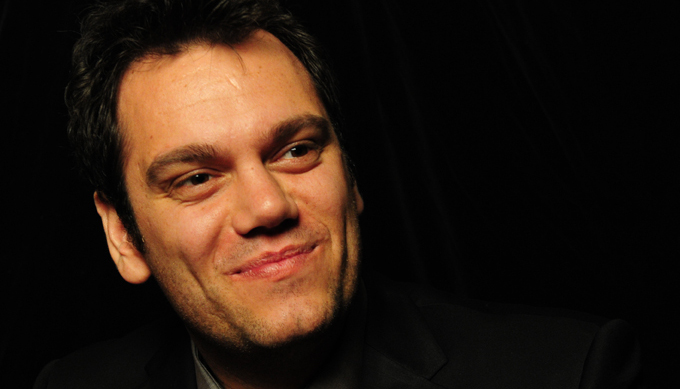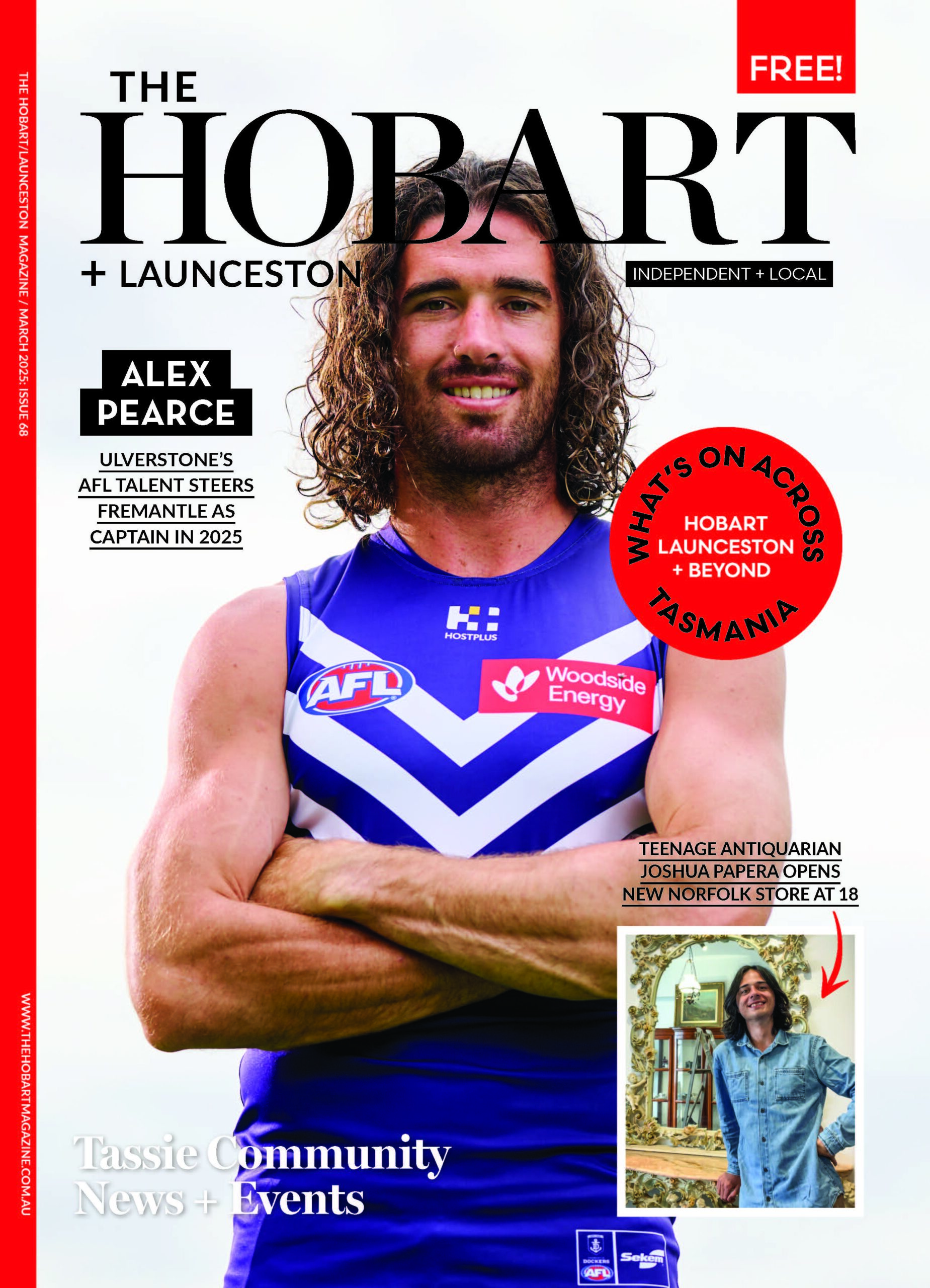Dewayne Everettsmith on Cultural Identity, Music, and Healing
by Hobart Magazine

Dewayne Everettsmith is a Hobart-based singer/songwriter whose debut album included the first commercially available song sung in palawa kani (Tasmanian Aboriginal Language). Now, he is working on a full-length palawa kani album with the Tasmanian Symphony Orchestra, which will be a history-making event when it’s released.
Where did you grow up and where do you live now? In my first years of life I lived with my mother and brother in Bridgewater. My mother gave me up for adoption when I was 4-5 years of age. She met my adopted grandmother (who I consider my mother) at the Aboriginal Children’s Centre in West Moonah where she handed me over with nothing but a Purity bag (now Woolworths) full of clothes. From then on I lived in the Channel and Kingston areas. Went to Margate Primary, Kingston High and Hobart College – I wagged most of college. Kingston is my choice of home today, being a good place for my boys to get around as the adventurous and independent teenagers that they are.
How did you get into making music? Music has always been a part of my life. My previous music manager was also my child protection worker when I was living with my mother. Their first memory of me when coming to visit, was me standing in the hallway playing guitar and singing. I put a concert on for them. I remember the moment when I wanted it to be a professional singer/songwriter and knew this is who I wanted to be. I was hanging out with my older brother and he started to sing Elton John’s Sad Songs. His voice was incredible. I had never heard anybody sing like that. I wanted to be just like him, sing like him and I wanted to sing to the whole world. So with the support of my grandmother driving me to gigs all over south Lutruwita (Tasmania), that was the beginning of my professional career.
In 2014 you made history with the release of melaythina, the first commercially available song sung in palawa kani. What does it personally mean to you to sing in this language? Singing in palawa kani (Tasmanian Aboriginal Language) comes more naturally to me than singing in English. For me it is a very powerful expression of culture, my identity and provides me with a strong sense of connection to my country, culture and people.
What is your songwriting process when creating music in palawa kani? Singing is one element of many that we have as palawa (Tasmanian Aboriginal People) to share knowledge to up-skill and educate each other, to also build connection and belong with each other and the country, culture and people we live within. Writing songs in palawa kani (Tasmanian Aboriginal Language) always begins with the question of ‘what knowledge needs to be shared?’ How do we get to the next fresh waterhole, or the button grass hutting grounds? What is the value we need to teach around managing the ecosystem, or greed and not over harvesting? The inspiration for the melody of the song comes from the country (sky, land and waterways). For example some melodies will follow the pathway and all the ups and downs of the hills, the bends in the walking track, the changing ecosystem that takes us from point A to point B. Our music scores are a bird eye view of country, as an example.
You’ve been working on an album with the Tasmanian Symphony Orchestra. Tell us more about this project and its significance. The palawa kani (Tasmanian Aboriginal Language) album is a collection of songs all in palawa kani that brings together many worlds. The dream is to reawaken songs of ceremony for palawa (Tasmanian Aboriginal People) and to also bring non-Aboriginal people into a story of cultural immersion and allyship. It brings together different genres of music and their cultural influences.
What do you hope this project will achieve, and when can we expect to hear it? It’s a collaboration and celebration of the coming together of many different values and cultures that are nurtured and guided by the cultural lore and framework of palawa (Tasmania Aboriginal People). Empowering palawa (Tasmania Aboriginal People) to express culture confidently and inclusively bringing all non-Aboriginal in to be part of that journey of growth and empowerment as a collective. 2027 is the year.
What are your plans for 2025? I will be completing the palawa kani (Tasmanian Aboriginal Language) album, finalising and completing the recording of the album and developing the show for delivery in 2027. I have been and will continue to be on a huge healing and growth journey. I’ve recently started my journey of neurodivergence (ADHD). This has been liberating and empowering. I will continue that journey. I also love being a parent. So more quality time with my boys before they decide I’m not cool enough.

